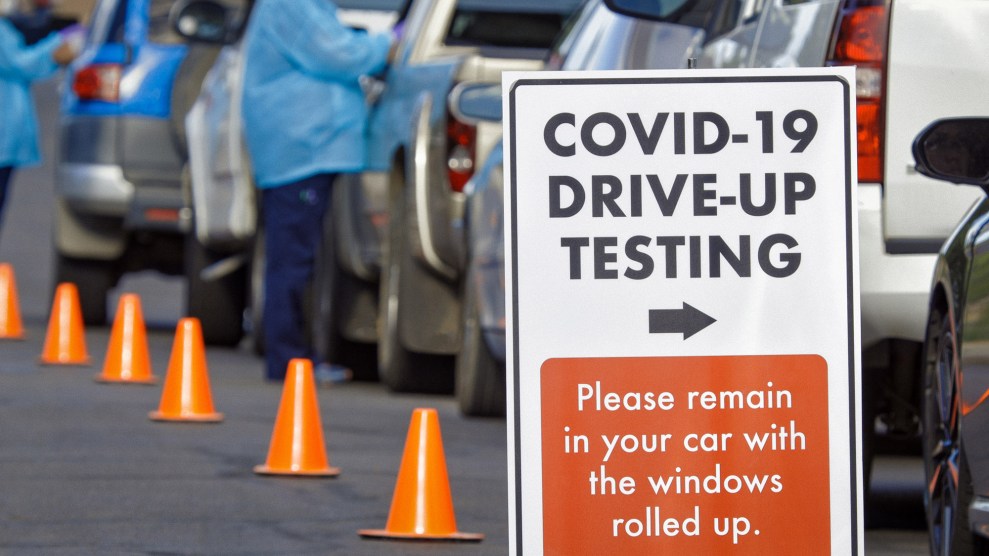In most places in the United States, teachers don’t yet qualify for COVID-19 vaccines. But one county in rural Georgia decided several weeks ago that its educators deserved early protection from the coronavirus—and now will face stiff consequences as a result.
Bucking designated priority group orders from the Georgia Department of Public Health, officials in Elbert County allowed teachers to be vaccinated at the same time as senior citizens over the age of 65. The county, which is in the northeast corner of Georgia, opened schools for in-person learning in the fall. Elbert County officials explained to the Atlanta Journal Constitution that many local students lack internet required for remote learning, and some rely on schools for food. The teachers are “seeing it, they’re facing it every day, a lot of times with 20 kids in their classroom,” Elbert County School District superintendent Jon Jarvis told the Atlanta Journal Constitution earlier this week.
But yesterday, Elbert County got word from the Georgia Department of Public Health that it would be punished for flouting the guidelines. The state plans to suspend all vaccine shipments to Elbert County for six months. According to Georgia DPH spokesperson Nancy Nydam, the state will not resume shipments to Elbert County until late July. “It is critical that DPH maintains the highest standards for vaccine accountability to ensure all federal and state requirements are adhered to by all parties, and vaccine is administered efficiently and equitably,” Nydam wrote to me in an email.
That decision doesn’t sit right with Peter Hotez, a vaccinologist, pediatrician, and dean of the National School of Tropical Medicine at Baylor College of Medicine. “I think it’s really important that we stop punishing groups or individuals for vaccinating those outside state or [national] COVID-19 vaccination guidelines,” he wrote to me in an email. He wrote that the guidelines aren’t laws, and that they were proposed “without a full understanding of our depleted health system for administering adult vaccinations.” He added that the guidelines “mostly serve as a barrier or hindrance to vaccinations rather than their intended purpose.”
Those sentiments were echoed by Jen Kates, senior vice president and director of global health & HIV policy at the Kaiser Family Foundation, who is tracking vaccine rollout efforts across the nation. “These are really impossible choices for any jurisdiction to make, and it raises tough questions about how states can best manage this process, ensure some uniformity across the state, and get shots in arms,” she wrote in an email. “Still, at the end of the day, it is not clear that this ‘stick’ approach, which cuts off the county from more doses, helps to reach the goal of vaccinating people—even those in the state’s priority groups—more quickly.”
When I tried to reach Elbert County’s Jarvis, his team emailed back a press release, which didn’t indicate whether the county planned to back off of vaccinating teachers. “Our goal during the COVID-19 pandemic has been to provide the best possible education for our students through both in-person and distance learning options, which we have done all but six days since the school year began in August,” the press release said. “The Elbert County School District will continue in its commitment to work in partnership with our local health officials, teachers, staff, and families to mitigate the spread of COVID-19 in our school district and community.”
















